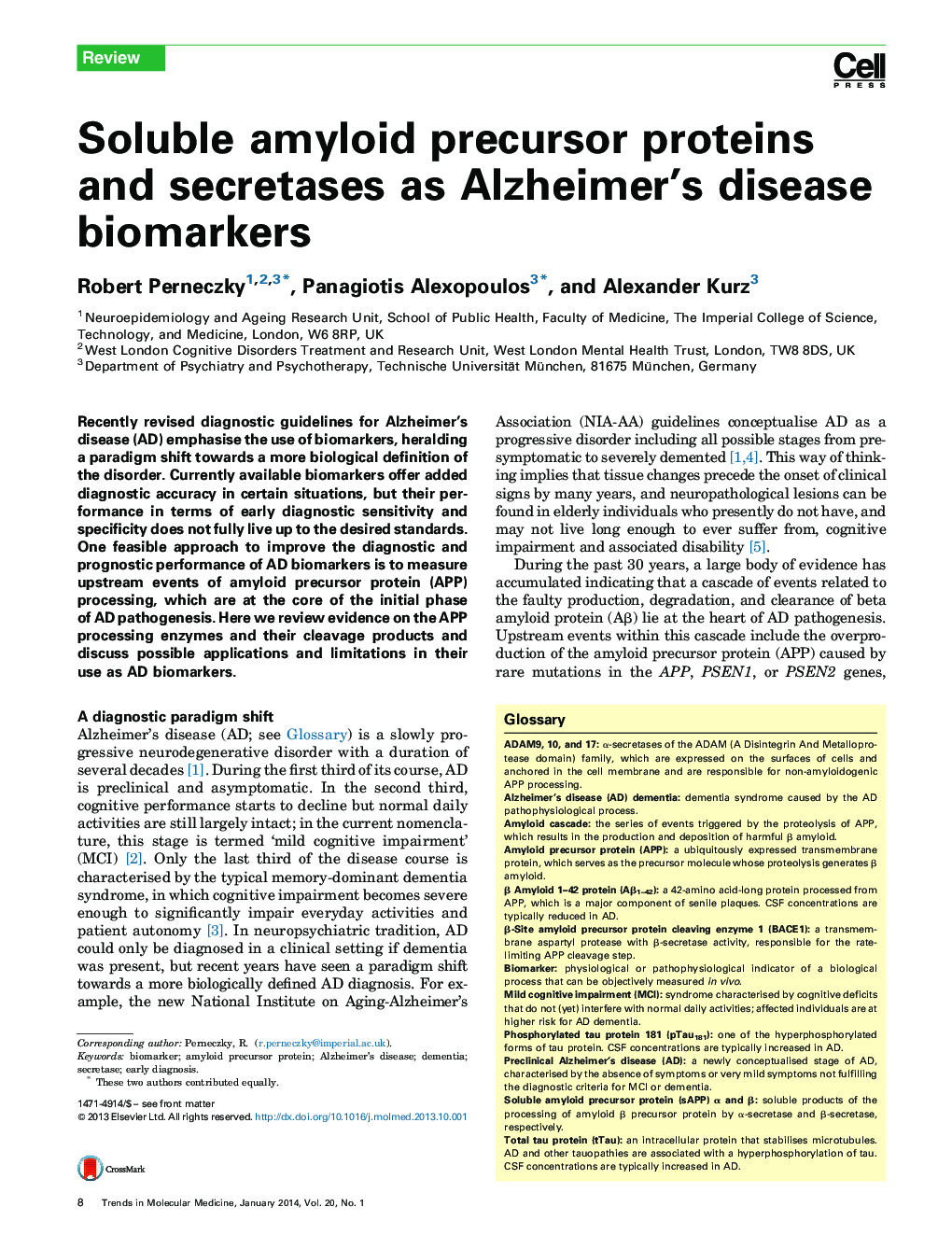| Article ID | Journal | Published Year | Pages | File Type |
|---|---|---|---|---|
| 2838642 | Trends in Molecular Medicine | 2014 | 8 Pages |
•Current biomarkers are not sensitive/specific enough for early Alzheimer's disease.•Upstream events of amyloid precursor protein processing are reflected in CSF/blood.•We summarise the evidence on secretases/amyloid precursor protein cleavage products.•The potential use as diagnostic/prognostic/theragnostic markers is discussed.
Recently revised diagnostic guidelines for Alzheimer's disease (AD) emphasise the use of biomarkers, heralding a paradigm shift towards a more biological definition of the disorder. Currently available biomarkers offer added diagnostic accuracy in certain situations, but their performance in terms of early diagnostic sensitivity and specificity does not fully live up to the desired standards. One feasible approach to improve the diagnostic and prognostic performance of AD biomarkers is to measure upstream events of amyloid precursor protein (APP) processing, which are at the core of the initial phase of AD pathogenesis. Here we review evidence on the APP processing enzymes and their cleavage products and discuss possible applications and limitations in their use as AD biomarkers.
